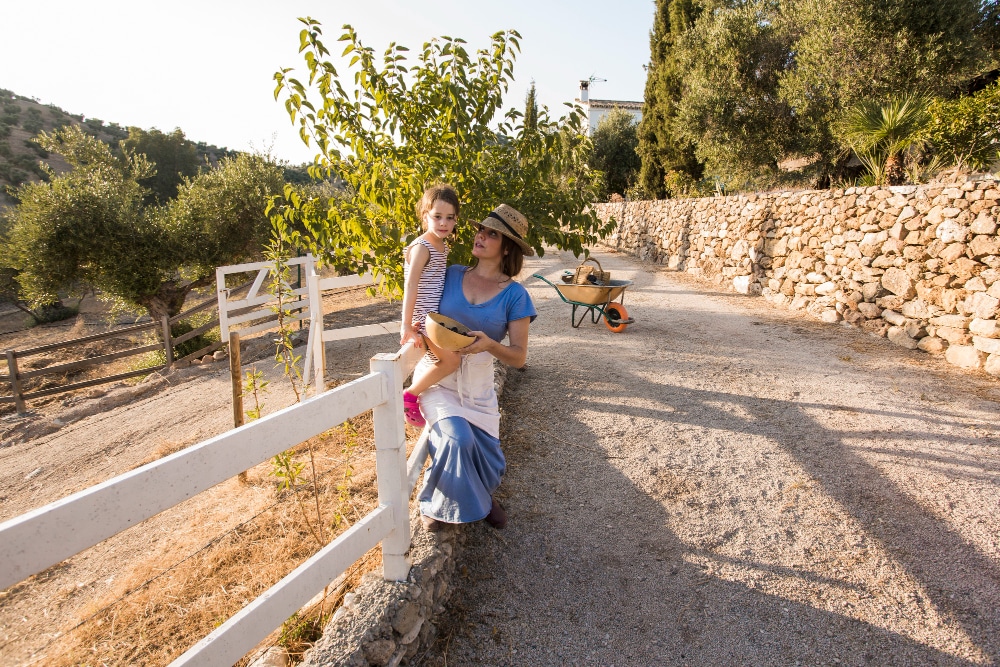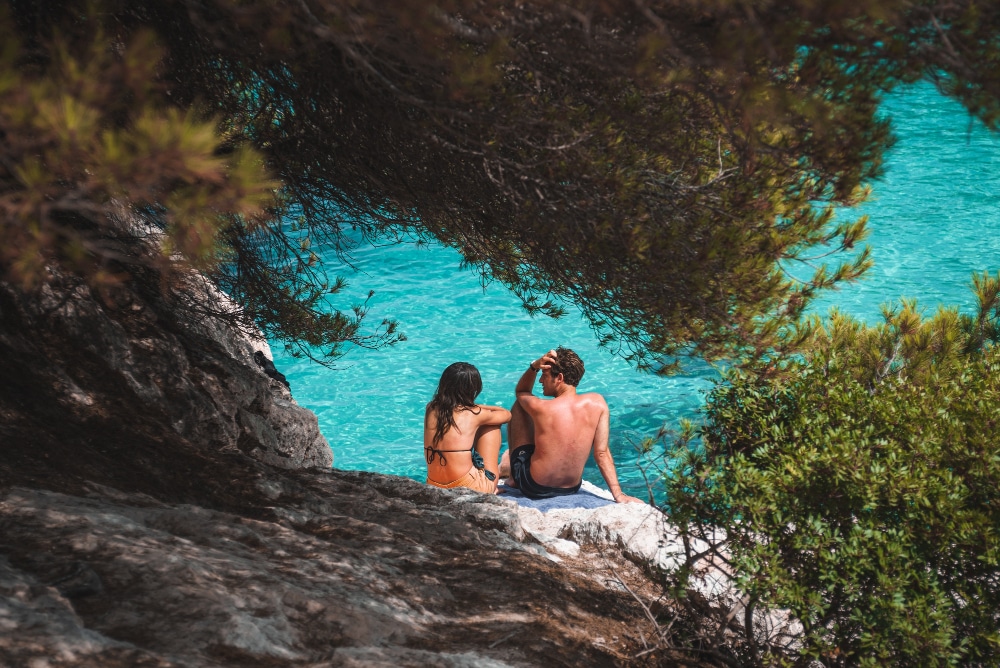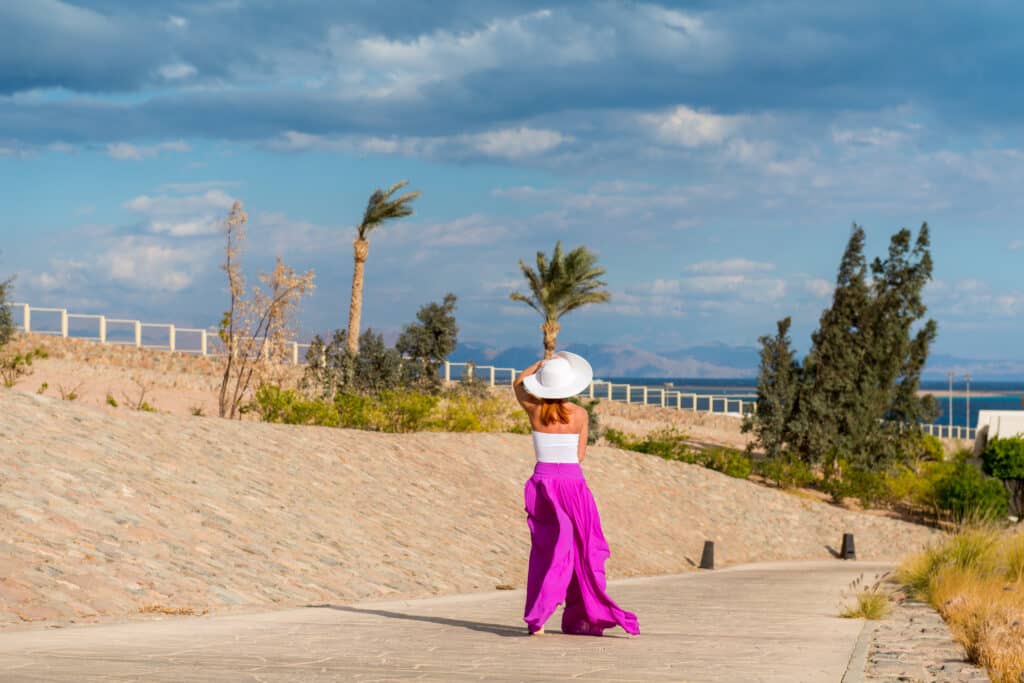Cyprus is a lovely Mediterranean island that can offer a lot of tourist pleasures, but there are some things to know before visiting Cyprus. Our Cyprus Travel Advice will prepare you for an unforgettably beautiful experience in this place, from understanding the local cultures to hitting the road and in general everything you need to know about Cyprus.
Introduction to Cyprus
Cyprus (officially the Republic of Cyprus) in the eastern Mediterranean is a place with lots of charm, history, and natural beauty. Being a part of the European Union, Cyprus harmoniously blends modern amenities with ancient wonders, appealing to people on the move. Still, like every place, it is better to be well-prepared before arriving.
Quick Points:
- Cyprus is a member of the European Union, and the currency on the island is the Euro (€).
- The island is renowned for its beautiful beaches, rich history, and vibrant culture.
- Preparation with local information makes it special and greater in one’s mind.
Moving Around: Public Transport and Driving Around Cyprus
There are plenty of ways to move around and travel the island in Cyprus, with public transport available in most cities and towns. Buses connect major areas and provide a low-cost way to explore the island. For more independence and flexibility, especially if you want to go around through scenic countryside or along coastal roads, car rentals offer that freedom and flexibility. It is also worth noting that in Cyprus, people drive on the left side of the road, which may be new for many visitors.
Quick Points:
- Buses and other public transports connect the important cities and towns.
- The city and country can be comfortably explored with a rental car.
- Like in the UK, the driver sits on the right side.
Beaches, Nature, and Hidden Gems
Cyprus is famous for its beaches, not all of which are stunning. In Limassol, the beach is rocky, while some other places boast sandy beaches. The best sandy beaches are found in Protaras, Ayia Napa, and Paphos. Besides the beaches, Cyprus has lush mountains, waterfalls, and charming villages for one to explore.
Quick Points:
- The best sandy beaches can be found in Protaras, Ayia Napa, and Paphos.
- If you want to go beyond the beaches, the Troodos Mountains will be a good place for you. Hidden waterfalls and charming mountain villages are waiting for you here.
- Don’t miss the coastal trails and nature reserves for a more serene experience.
Nightlife, Culture and Social Etiquette
Cyprus boasts a relatively subdued nightlife characterized by intimate bars and restaurants, not hard-core dance venues. This reflects the culture and religious life of the island where the evenings are traditionally reserved for fine dining and good conversation.
Quick Points:
- Nightlife is more laid back; think bars and restaurants, not nightclubs.
- The local culture is affected by religious influence, such as Greek Orthodoxy.
- Evening trips are quite popular, but public drunkenness is frowned upon by Cypriots.
Cost of Living and Money Management
Cyprus can be pricier than one would assume, especially over the peak tourist seasons and especially in Tourist Areas. Accommodation, car rentals, and food are mostly expensive, so it is best to get your budget in place. A good restaurant meal might be priced between €25 to €30 per head and serves tasty Mediterranean dishes.
Quick Points:
- Peak tourist seasons can inflate the cost of accommodation as well as restaurants and eateries.
- One can expect to pay €25–€30 per person for a good meal in a restaurant.
- Save on expenses by visiting during off-seasons.
Religious and Cultural Significance
Cyprus is steeped in religious heritage with Greek Orthodoxy forming the backbone of everyday life. Visitors must respect local habits and religious customs, especially during important holidays such as Easter.
Quick Points:
- Predominant religion is Greek Orthodoxy; traditions and holidays are generally based on this religion.
- Respect for local traditions and especially the Orthodox religious holidays.
- Visit some of the islands’ beautiful Orthodox churches to get an insight into local spirituality.
Public Holidays, Customs and Everyday Life
Most public holidays are observed in Cyprus, and this can affect the traveling schedule. A number of shops and offices typically shut over the midday breaks and holidays. You should, therefore, endeavor to plan your days appropriately.
Quick Points:
- Check local holidays; most establishments are closed during these times.
- Most midday breaks are from 13:00 to 14:00.
- There are some kiosks that run round-the-clock services and which you can utilize to obtain essentials during these times.
Environmental Protection Practices and Safety
Cyprus is indeed establishing itself in the environmental protection field, but there’s still a lot to be achieved. Recycling practices are improved more and more each day, and visitors can contribute to the cause through thoughtful waste disposal. Moreover, Cyprus is a relatively safe destination, but it’s always good to take basic precautions.
Quick Points:
- Efforts in recycling are increasing and you can join in by sorting your waste properly.
- Do not litter and be aware of your environment.
- Cyprus is generally safe, but keep your valuables secure, particularly while driving.
Preparing for Your Trip: Visas and Packing
Depending on where you’re coming from, Cyprus visa requirements may vary. Most EU, US, Canadian, Australian, and UK citizens don’t need a visa for short stays. Packing appropriately for the varied climate is also key – don’t forget warmer clothes if you plan to visit the mountains.
Quick Points:
- Most EU, US, Canadian, Australian, and British citizens don’t need a visa for stays of less than 90 days.
- Prepare for all climates: bring your heavy coat for mountainous areas and pack some light summer clothing for the coast.
- Remember to bring a type G plug adapter from home if you are not coming from the UK.
Getting Around: Maps and Navigation
Getting around the island without the proper resources is complicated. Although a general overview can be obtained through paper maps, it is strongly suggested to use a GPS to receive the most accurate directions, especially in rural areas.
Quick Points:
- Use a GPS for accurate navigation, particularly in rural areas.
- Get a general idea of the island using paper maps.
- Road signs follow international standards, but look out for local driving habits.
Accommodation: Hotels and Places to Stay
Cyprus is a place of accommodation for all types of travellers according to their budget, be it low-budget hotels or luxury resorts. Though most of the hotels have made their way into the tourist locations, there are also lots of charming guesthouses that are spotted in the quieter places of rural charm.
Quick Points:
- Accommodation is available in a wide range: budget to luxury.
- There are many hotels in the coastal areas; for a quieter stay, you can consider guesthouses in rural areas.
- Book very early in advance, if you can, especially in peak seasons, to have the best deals.
Conclusion and Final Recommendations
Cyprus is a beautiful destination with abundant culture, breathtaking landscapes, and warm hospitality. The understanding of local customs, budget planning, and taking precautions while traveling across the island are all you need for a smooth trip. In this short while, get to explore beyond the usual tourist spots and you will realize the true beauty of Cyprus.
Frequently asked questions
What is the weather like in Cyprus?
Cyprus enjoys a Mediterranean climate with hot, dry summers and mild, wet winters. July and August are the hottest months, with temperatures often exceeding 30°C, while winter in Cyprus is mild, especially in coastal areas. The island experiences around 340 days of sunshine a year, making it a year-round destination for travellers.
Do I need a passport to travel to Cyprus?
Yes, you need a valid passport to travel to Cyprus. EU citizens can enter with just a national ID card, but non-EU nationals, including those from the UK, US, Canada, and Australia, must carry a passport valid for at least six months from the date of entry.
What are the entry requirements for Cyprus?
Entry requirements vary depending on your nationality. Citizens of the EU, US, Canada, Australia, and the UK do not need a visa for stays under 90 days. However, visitors from non-EU countries should check the specific visa requirements before traveling to the Republic of Cyprus.
What currency is used in Cyprus?
The official currency in Cyprus is the Euro (€). In the northern part of the island, known as the Turkish Republic of Northern Cyprus, the official currency is the Turkish Lira (₺). However, Euros are widely accepted in both parts of the island.
Is Cyprus divided into two parts?
Yes, Cyprus is divided into two parts. The Republic of Cyprus controls the southern two-thirds, while the Turkish Republic of Northern Cyprus governs the northern third. The capital, Nicosia, is the last divided capital in the world, with the “Green Line” separating the Greek Cypriot and Turkish Cypriot communities.
What language is spoken in Cyprus?
The official languages of Cyprus are Greek and Turkish. Greek is predominantly spoken in the south (Republic of Cyprus), while Turkish is spoken in the north (Turkish Republic of Northern Cyprus). English is also widely spoken across the island, especially in tourist areas.
Can I use my credit card in Cyprus?
Yes, credit cards are widely accepted in Cyprus. You can use major credit cards such as Visa and MasterCard in most hotels, restaurants, and shops in both the Republic of Cyprus and Northern Cyprus. However, it’s always a good idea to carry some cash for smaller establishments.
Is it safe to drink tap water in Cyprus?
Yes, tap water in Cyprus is generally safe to drink. The Republic of Cyprus maintains high water quality standards, and the tap water is regularly tested for safety. In Northern Cyprus, while the tap water is also safe, some people prefer bottled water.
What is the best time to visit Cyprus?
The best time to visit Cyprus is during the spring (April to June) and autumn (September to October). The weather in Cyprus is warm, and the days are sunny, making it ideal for exploring the island’s beaches and historical sites. July and August are the peak tourist months but can be quite hot.
What should I pack for a trip to Cyprus?
When packing for Cyprus, bring light, breathable clothing for the hot weather, especially in summer. If you plan to visit the Troodos Mountains or monasteries, pack some warmer clothes as temperatures can drop. Don’t forget a type G plug adapter if you’re not from the UK, and comfortable shoes for exploring.
How do I get around Cyprus?
You can get around Cyprus by bus, taxi, or renting a car. Buses connect major cities and tourist spots, but for more flexibility, renting a car is recommended. Remember, Cyprus drives on the left-hand side, similar to the UK.
Can I visit Northern Cyprus from the Republic of Cyprus?
Yes, you can visit Northern Cyprus from the Republic of Cyprus. You can cross the Green Line at several checkpoints in Nicosia and other border points. A valid passport is required to cross between the two sides, and you may need to show it at the checkpoints.
What is the significance of halloumi in Cyprus?
Halloumi is a traditional Cypriot cheese made from goat’s and sheep’s milk. It is a significant part of Cypriot cuisine and is often served grilled or fried. Halloumi is enjoyed both in the Republic of Cyprus and Northern Cyprus, often with pitta bread or as part of a meze.
Do I need travel insurance for Cyprus?
It is highly recommended to have travel insurance when visiting Cyprus. Travel insurance should cover medical emergencies, trip cancellations, and lost belongings. The European Health Insurance Card (EHIC) or Global Health Insurance Card (GHIC) may provide some coverage for EU nationals, but additional insurance is advisable.
What are the must-visit places in Cyprus?
Must-visit places in Cyprus include the Troodos Mountains, the ancient city of Paphos, and the beaches of Ayia Napa and Protaras. The capital, Nicosia, is also a must-see for its unique blend of Greek and Turkish influences. The northern part of the island, including the historic town of Famagusta, is also worth exploring.
Is Cyprus a safe destination for travellers?
Cyprus is generally a safe destination for travellers. The island has low crime rates, and violent crime is rare. However, as with any travel, it’s wise to take basic precautions, such as securing valuables and being aware of your surroundings, particularly in crowded tourist areas.
What is the food like in Cyprus?
Cypriot cuisine is a delicious blend of Greek and Turkish influences. Traditional dishes include halloumi cheese, souvlaki, moussaka, and fresh seafood. The food is often served with pitta bread and a variety of dips. Eating out in Cyprus offers a rich taste of the Mediterranean diet.
How is the driving experience in Cyprus?
Driving in Cyprus is on the left-hand side, and most road signs are in both Greek and English. The roads are generally well-maintained, and renting a car is a convenient way to explore the island. Be mindful of local driving customs, especially in rural areas.
Are there any cultural tips I should know before traveling to Cyprus?
When in Cyprus, it’s important to respect local customs and traditions, particularly in religious settings. Cypriots are known for their hospitality, and it’s customary to greet people warmly. When visiting churches or monasteries, dress modestly, and be aware of local holidays when many businesses may close.
What should I know about the division of Cyprus?
Cyprus has been divided into two parts since 1974: the Republic of Cyprus in the south and the Turkish Republic of Northern Cyprus in the north. Nicosia, the capital, is split by the Green Line, with checkpoints allowing travel between the two sides. While the island is politically divided, it remains a popular and peaceful destination for visitors.






